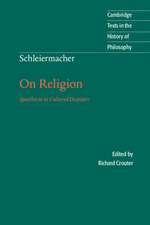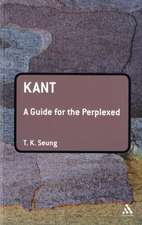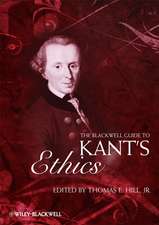The Neo-Kantian Reader
Editat de Sebastian Luften Limba Engleză Hardback – 13 mai 2015
Sebastian Luft, together with other scholars, provides clear introductions to each of the following sections (to the authors as well as to each text), placing them in historical and philosophical context:
- the beginnings of Neo-Kantianism: including the work of Hermann von Helmholtz, Otto Liebman, Friedrich Lange, and Hermann Lotze
- the Marburg School: including Hermann Cohen, Paul Natorp, and Ernst Cassirer
- the Southwest School: including Wilhelm Windelband, Heinrich Rickert, Emil Lask, and Hans Vaihinger
- responses and critiques: including Moritz Schlick, Edmund Husserl; Rudolf Carnap, and the 'Davos dispute' between Martin Heidegger and Ernst Cassirer.
| Toate formatele și edițiile | Preț | Express |
|---|---|---|
| Paperback (1) | 509.50 lei 6-8 săpt. | |
| Taylor & Francis – 12 mai 2015 | 509.50 lei 6-8 săpt. | |
| Hardback (1) | 886.83 lei 6-8 săpt. | |
| Taylor & Francis – 13 mai 2015 | 886.83 lei 6-8 săpt. |
Preț: 886.83 lei
Preț vechi: 1260.14 lei
-30% Nou
Puncte Express: 1330
Preț estimativ în valută:
169.69€ • 177.19$ • 140.13£
169.69€ • 177.19$ • 140.13£
Carte tipărită la comandă
Livrare economică 15-29 aprilie
Preluare comenzi: 021 569.72.76
Specificații
ISBN-13: 9780415452526
ISBN-10: 041545252X
Pagini: 538
Dimensiuni: 174 x 246 x 33 mm
Greutate: 1.08 kg
Ediția:1
Editura: Taylor & Francis
Colecția Routledge
Locul publicării:Oxford, United Kingdom
ISBN-10: 041545252X
Pagini: 538
Dimensiuni: 174 x 246 x 33 mm
Greutate: 1.08 kg
Ediția:1
Editura: Taylor & Francis
Colecția Routledge
Locul publicării:Oxford, United Kingdom
Public țintă
Postgraduate and UndergraduateCuprins
Editor’s Introduction Part 1: Beginnings Introduction: Hermann von Helmholtz (1821-1894) 1. On General Physical Concepts (before 1847) 2. On the Origin and Significance of Geometrical Axioms (1876) 3. The Origin And Meaning of Geometric Axioms (1878) Introduction: Otto Liebmann (1840-1912) 4. Kant’s Chief Doctrine and His Chief Mistakes, from Kant and the Epigones (1865) Introduction: Friedrich Albert Lange (1828-1875) 5. The Standpoint of the Ideal, from The History of Materialism (1873) Introduction: Rudolf Hermann Lotze (1817-1881) 6. The World of Ideas, from Logic (1874) Part 2: The Marburg School Introduction: Hermann Cohen (1842-1918) 7. Introduction from The Principle of the Infinitesimal Method and Its History (1883) 8. The Synthetic Principles, from Kant’s Theory of Experience (1885) 9. The Relationship of Logic to Physics, from the Introduction to the edition of Lange’s History of Materialism (1914) 10. The Discovery of Man as Fellowman, from Religion of Reason Out Of the Sources of Judaism (1918) Introduction: Paul Natorp (1854-1924) 11. On the Objective and Subjective Grounding of Knowledge (1887) 12. Kant and the Marburg School (1912) 13. The Problem of a Logic of the Exact Sciences, from The Logical Foundations of the Exact Sciences (1921) Introduction: Ernst Cassirer (1874 -1945) 14. Hermann Cohen and the Renewal of Kantian Philosophy (1912) 15. Euclidean and non-Euclidean Geometry, from Einstein’s Theory of Relativity (1921) 16. The Place of Language and Myth in the Pattern of Human Culture, from Language and Myth (1925) 17. The Problem of the Symbol and Its Place in the System of Philosophy (1927) Part 3: The Southwest School Introduction: Wilhelm Windelband (1848-1915) 18. Critical or Genetic Method? (1883) 19. History and Natural Science (1894) 20. Introduction to the History of Philosophy (1900) 21. Philosophy of Culture and Transcendental Idealism (1910) Introduction: Heinrich Rickert (1863-1936) 22. Concept Formation in History, from The Limits of Concept Formation in Natural Science: A Logical Introduction to the Historical Sciences (1902) 23. Knowing and Cognizing. Critical Comments on Theoretical Intuitionism (1934) Introduction: Emil Lask (1875-1915) 24. Announcement of The Logic of Philosophy and the Doctrine of Categories (1910) 25. The Logic of the Ontological Categories, from The Logic of Philosophy and the Doctrine of Categories (1911) 26. The Boundlessness of Truth, from The Logic of Philosophy and the Doctrine of Categories (1911) Introduction: Hans Vaihinger (1852-1933) 27. General Introduction to The Philosophy of the As-If (1911) 28. The Atom as Fiction, from The Philosophy of the As-If (1911) 29. Things-in-Themselves [as Fiction], from The Philosophy of the As-If (1911) Part 4: Responses and Critiques Introduction: Moritz Schlick (1882-1936) 30. Critical or Empiricist Interpretation of Modern Physics? (1921) Introduction: Rudolf Carnap (1891-1970) 31. Space as Condition for Experience, from Der Raum (1922) Introduction: Edmund Husserl (1859-1938) 32. The Classification of the Sciences According to Windelband’s and Rickert’s Methods" from Nature and Spirit (1927) Introduction: Martin Heidegger (1889-1976) & Ernst Cassirer 33. The Davos Dispute (1929). Bibliography of Major Neo-Kantian Works in German Bibliography of Major Neo-Kantian Works in English. Index
Recenzii
'The appearance of this collection is a major event in the study of nineteenth century philosophy. … [T]he volume’s achievement is impressive, and twofold: (1) for the first time, it brings together a representative collection of Neokantian texts in English, and (2) it offers translations of essential material that has been unavailable to English readers. … It is probably the biggest step forward for the understanding of Neokantianism in the Anglophone world to date.' - Garrett Zantow Bredeson, Studia Phaenomenologica
'Every article in this timely collection is extremely interesting. It makes the work of a key group of German philosophers more widely accessible, thus supporting the growing revival of philosophical interest in the neo-Kantian movement. The book demonstrates that while elements of our contemporary thinking on Kant and Hegel were anticipated by the neo-Kantians, other philosophical opportunities are still to be discovered.' - Pierre Keller, University of California, Riverside, USA
'An indispensable resource for teaching neo-Kantianism, the most important movement in late nineteenth-century German philosophy. It fills a longstanding gap in the history of late modern philosophy available to English-speaking readers. The new translations are admirably clear, and the introductions to each section are written with an eye to making the selections accessible to a general philosophical audience.' - Scott Edgar, Saint Mary's University, Canada
'Every article in this timely collection is extremely interesting. It makes the work of a key group of German philosophers more widely accessible, thus supporting the growing revival of philosophical interest in the neo-Kantian movement. The book demonstrates that while elements of our contemporary thinking on Kant and Hegel were anticipated by the neo-Kantians, other philosophical opportunities are still to be discovered.' - Pierre Keller, University of California, Riverside, USA
'An indispensable resource for teaching neo-Kantianism, the most important movement in late nineteenth-century German philosophy. It fills a longstanding gap in the history of late modern philosophy available to English-speaking readers. The new translations are admirably clear, and the introductions to each section are written with an eye to making the selections accessible to a general philosophical audience.' - Scott Edgar, Saint Mary's University, Canada
Descriere
The Neo-Kantian Reader is the first anthology to collect the most important primary sources in Neo-Kantian philosophy, with many being published here in English for the first time. Essential reading for all students of nineteenth and twentieth century philosophy and phenomenology.







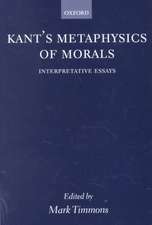




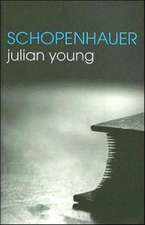
![British Empirical Philosophers (Routledge Revivals): Locke, Berkeley, Hume, Reid and J. S. Mill. [An anthology]](https://i4.books-express.ro/bt/9780415537742/british-empirical-philosophers-routledge-revivals.jpg)


